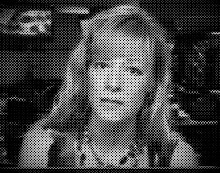
KUSA - Peaberry Coffee, Inc. and its franchisees are locked in a legal battle over claims of fraud, with franchisees claiming that Peaberry lied about the company's profitability to induce them to buy into an unprofitable business. Denver labor law attorney Kim Ryan talked about the case with Gary Shapiro on 9NEWS 7 a.m.
The lawsuit. Ten franchisees of the Denver-based Peaberry's coffee chain filed suit against Peaberry in 2007, alleging that they had lost millions of dollars after buying Peaberry's franchises based on company representations about Peaberry's financial condition. They also claimed that Peaberry should have told them about its plan to sell of several stores to their biggest competitor at the time, Starbucks. The franchisees also sued the law firm that represented Peaberry during the franchise process, claiming that the firm conspired with Peaberry to set up a fraudulent franchise system.
A Denver state court judge recently found in favor of Peaberry, despite finding that Peaberry provided false information to franchise buyers in 2003 in part by "actively concealing" the fact that Peaberry had not turned a profit since 1998.
After a five-week bench trial over a four month period, Judge William D. Robbins also found that during the negotiation process, Peaberry made material misrepresentations about the company's financial state in claiming that the company was in good financial condition, although it was losing more than a million dollars a year.
Surprise ruling. But in what some experts consider a surprise ruling, Judge Robbins found that it was not reasonable for the franchise buyers to rely on certain company statements outside their written franchise agreement.
Franchisees had argued that they relied on representations the company included in its marketing materials, the media, and public statements by company officers. The court agreed that several of these statements misrepresented material facts.
However, the franchise agreement contained an acknowledgment that the parties were not relying on any representations outside of the agreement, so the judge found that Peaberry's material misrepresentations in its marketing materials and in the press were not enough to award the franchisees the $24 million they sought in actual and punitive damages.
Instead, the judge ordered the franchisees to pay nearly $100,000 in royalty fees to Peaberry, as well as Peaberry's attorneys' fees and costs, which could be hundreds of thousands of dollars. Attorneys Hugh Q. Gottschalk and Andrew M. Unthank, who did not participate in the franchise deals, represented Peaberry Coffee in the court case.
What's next. The franchisees are appealing the judge's decision. Their attorney, Richard B. Podoll, filed court papers claiming 21 points of error, including his claim that the case should have been decided by a jury and not a judge to begin with. He also will seek a ruling as to possible liability of the law firm that represented Peaberry in the franchise deals, as no determination has been made at this time.
Several franchise owners have had to close their doors after spending hundreds of thousands of dollars to buy and operate franchises they say were destined to fail. Michael Noricks, owner of the Peaberry Coffee outside the Colorado Mills mall felt bad about recently having to close his store abruptly without a "heads up" to his many regular customers.
Franchise lawyers across the country are watching this case to see what happens on appeal. Meanwhile, Noricks says that he had no choice but to close his store, also noting that the franchisees "are battling for our financial lives while the appeals process ensues."
Case: Colorado Coffee Bean, LLC v. Peaberry Coffee, Inc., 2006 CV 4514 (Colo. Dist. Ct. 2009); Photo courtesy PDPhoto.org




The opinion on the Appeal was posted on the website of the Colorado Court of Appeals, Court of Appeals No. 09CA0130, on February 18th, 2010. It is interesting reading -- even for lay people, and especially for the plaintiff franchisees.
ReplyDeleteWhile the Judgement was affirmed in part, vacated in part, and the case was remanded with directions, perhaps a door has been opened to discuss what might constitute common law fraud over and above what is required to be disclosed under the provisions of the ineffective and inadequate FTC Rule and the FDD's that govern disclosure in the sale of franchises.
Hopefully, there will be justice for the plaintiffs. It is not over until the fat lady sings and no matter what the District Court again decides, any party can appeal. Perhaps this will act to settle the matter because those in and around franchising who like the ineffective FTC Rule may not want to make new case law in the courts.
Unfortunately, the known FLAW in the FTC Rule governing the sale of franchises to the public does encourage franchisers and their attorneys to sell unprofitable and economically unviable franchises to the public under cover of the FTC Rule and state FDD's.
ReplyDeleteLets hope that the Remand of the Case on Feb 18th by the 10th Circuit Court of Appeals will ultimately expose the flaw and the limitations of the FTC Rule as to protection of prospective franchisees.